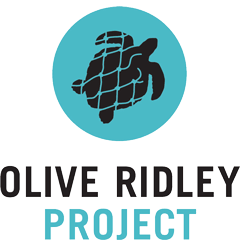An Account by ORP’s Sea Turtle Monitoring Assistant, Leah Mainye
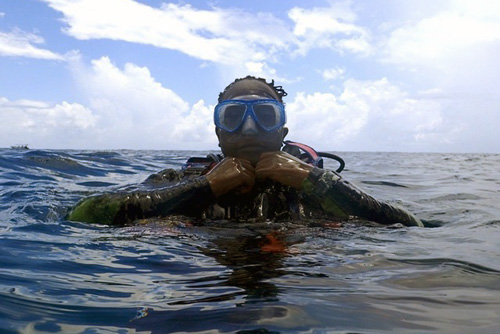
Leah Mainye’s journey to becoming a marine biologist is anything but conventional. Born and raised in the lush but landlocked Gusii Highlands of Kenya, the ocean was once a distant dream for Leah. Today, she lives that dream with pride. Leah joined ORP – Kenya in December 2019 as an in-water turtle monitoring assistant. Since then, she has grown into a vital member of the team, now serving as the Assistant Programme Manager for Kenya and Chairperson of ORP’s Board of Directors.
A nurse? Or navy?
My initial aspirations and dreams were typically traditional, I wanted to become a nurse, a career approved and respected by society. Then, out of nowhere, came a defining moment, inspired by a National Geographic documentary about the ocean. The little girl in me watched in wonder as scuba divers effortlessly glided through the underwater world, completely absorbed in their work while vibrant fish and coral reefs bloomed with life around them. I was captivated, I wanted to be like these divers. This mysterious world, accessible to me then only through the screen of my television, had an undeniable pull.
Unable to quite understand this career, I defaulted to the familiar. “This must be the Navy!”, the little me thought. “I want to either be a nurse or a navy officer” I announced confidently to her parents. My parents could not grasp how their daughter, who had never encountered such large volumes of water, could flourish in them.
Life continued, and like many childhood dreams, this one too was relegated to the confines of my mind. Why? I alone was not going to convince anyone of this unfamiliar path, especially when I myself remained quite unaware of what this life-calling was.
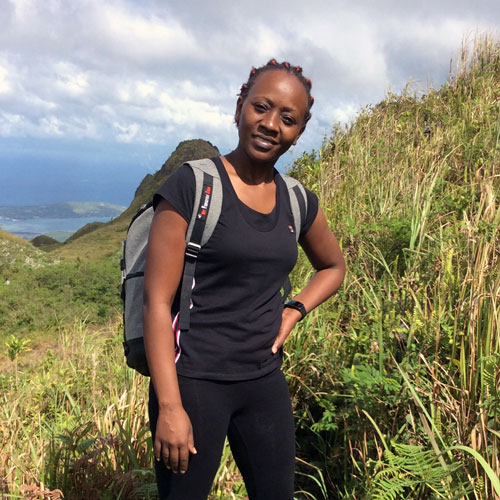
Confusion sets in
I struggled to understand this calling, especially since I was roughly 800 kilometres from the sea. There was no coastline here, no deep blue ocean, and a complete absence of the ocean people I had seen on the television.
Even upon joining high school, I still had not figured out how to get closer to my dream. Marine Biology was a career unheard of in the highlands of Kenya, none of my peers or family knew of anyone who had made a career out of studying the ocean. With no help available, I had no idea how to get any closer to my dream! I finally resolved to stop thinking about the ‘whole diving thing’ and focus on other ‘easily attainable careers’.
As an aside, even today, people are still surprised when I mention that my office is sometimes underwater.
Quick detour into supplies management
I pushed forward with other pursuits and, upon graduating from high school, I decided to pursue a career in supply and procurement management. But, the call of the ocean remained strong, and I understood what longing truly meant.
My professional journey in the corporate world was not fulfilling, and my heart yearned for the beautiful underwater vistas I had once seen on the screen. Fortunately, I met some amazing mentors through my work, who helped me understand her passion better.
I finally decided it was time to take the plunge! I began looking for marine biology courses in Kenya; however, most options focused on aquaculture, fisheries, or coastal resource management. I then chanced upon a Marine Biology programme in the Philippines – I just knew I had to enrol.
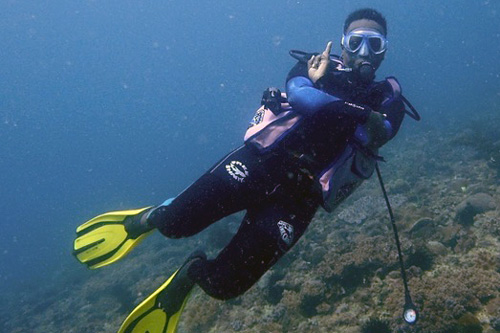
Chasing the dream: Studying Marine Biology in Philippines
I arrived in the Philippines, a country surrounded by water, so far and so different from home. While earning my Bachelor of Science in Marine Biology, I also enrolled in a diving course, and soon earned my first scuba diving certification. While in class I learned about the coral reef ecosystem, the fishes of the reef, the symbiotic relationships that occur within it x, y, z, I observed these phenomena in real time during my dives.
A dream come true, right? From here on, there was no stopping me, I was ready for the adventure yet to come.
After completing my studies, I returned home with dreams of underwater adventures. However, upon my return, I faced something of a culture shock. I had expected to find a team of Kenyan women, sisters-in-arms, pursuing the same journey as me, only to be surprised by their scarcity. Diving, I learned, was considered ‘a man’s thing’! As most stories of defiance go, I did not allow this notion of the ocean being a gendered space to dampen my spirits. In fact, it ignited a desire within me to break these societal labels.
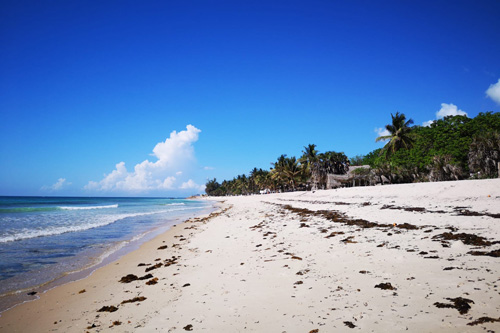
Back to Kenya: Challenges in the field
The Kenyan coast, a vibrant ecosystem of coral reefs, seagrass beds, and mangrove forests, holds immense significance for its rich biodiversity and the livelihoods it supports. Despite this richness, opportunities for marine biologists, particularly within local non-governmental organisations (NGOs), remain frustratingly scarce.
This scarcity presents significant employment barriers for many Kenyans aspiring to enter the field. A prevalent challenge across various sectors is the demand for candidates who possess several years of experience, a requirement that often disqualifies many promising new individuals. Consequently, this leaves numerous young people feeling disconnected from or discouraged about engaging in conservation efforts, limiting their involvement in protecting their invaluable marine environment along the coast.
Joining ORP: A breakthrough
After returning from the Philippines, I pursued volunteer and internship opportunities to immerse myself in marine conservation efforts in Kenya, which ranged from seagrass monitoring, sharks and rays, echinoderm studies and plastic pollution studies. During my second internship at Reefolution Foundation an organisation that is dedicated to conserving and restoring coral reefs in coastal Kenya I learned about an opening for a Sea Turtle Monitoring assistant at the ORP and successfully applied for the position. My employment at ORP was significant, as I became the first local hire, paving the way for greater local involvement in marine conservation. Over three months, I completed more than 112 dives and spent a considerable amount of time with turtles. I actively participated in experiential work, conducting sea turtle photo identification and making direct contributions to marine conservation.
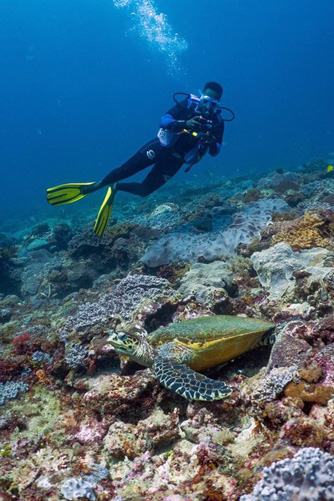
Six years and counting at ORP
For over six years, I have been an integral part of the ORP team. Among my favourite experiences are the daily encounters with sea turtles and the tangible impact of my conservation work.
ORP provided me an opportunity to take on various leadership roles, progressing from a sea turtle monitoring assistant to project coordinator, and now serving as the Assistant Program manager and the first chairperson of the Board of Directors for ORP – Kenya.
While these titles are in recognition of all the work I have put in and the progress I have made, perhaps more important are the new skills I have gained along the way – not only in marine research and diving, but also in project management, community engagement, and scientific communication. I have also gained recognition as the first female turtle conservation drone pilot in Kenya, and gone further to represent the organisation in international symposiums in South Africa and Ghana, where she has offered oral presentations such as WIOMSA, ISTS, IMCC and WRTI-Scientific conferences.
But there is something else that I value incredibly, and that is the opportunity to be able to guide new team members and advocate for local participation. I take absolute pride in my ability to serve as a role model for young girls in Kenya. Growing up, I did not have anyone to look up to, someone who looked like me, spoke like me, lived like me, and had achieved the dreams I was only beginning to dream. Today, when I meet young girls, bright-eyed and curious, I am determined to guide them, to show them that unconventional is just a word, and beyond the confines of convention, life grows and flourishes. That even dreams which begin far from the ocean’s edge, can become a powerful reality.
Reflections and hopes for the future
My journey highlights the highs and lows of conservation work. While contributing to marine life protection is rewarding, challenges like securing sustainable funding and raising public awareness persist. Looking ahead, I hopes for a future in marine conservation in Kenya, characterised by two main visions:
First, I envision a future where young Kenyan scientists, researchers, and conservationists are actively empowered and provided with meaningful opportunities rather than token internships. I believe in building capacity from within and ensuring that the next generation has the skills, resources, and mentorship to lead.
Second, I advocate for the genuine integration of local communities in conservation efforts. I stand firm on the importance of respecting local knowledge and ensuring that communities benefit directly from initiatives, that they are not just treated as “props” used to advance the careers of international expatriates, but that true collaboration and shared decision-making is practised in earnes
Did you feel inspire by Leah’s account? Let us know! Or share your own story and get it featured in our website to inspire others to follow this dream!
ORP’s work in Kenya has been supported by The Sands at Nomad, Diving the Crab Dive Centre and the marine team at Diani Marine Education Centre. If you would like to contribute towards our work and help us support people like Leah Mainye in our team, please consider a monthly donation, or adopting a turtle from Kenya!

